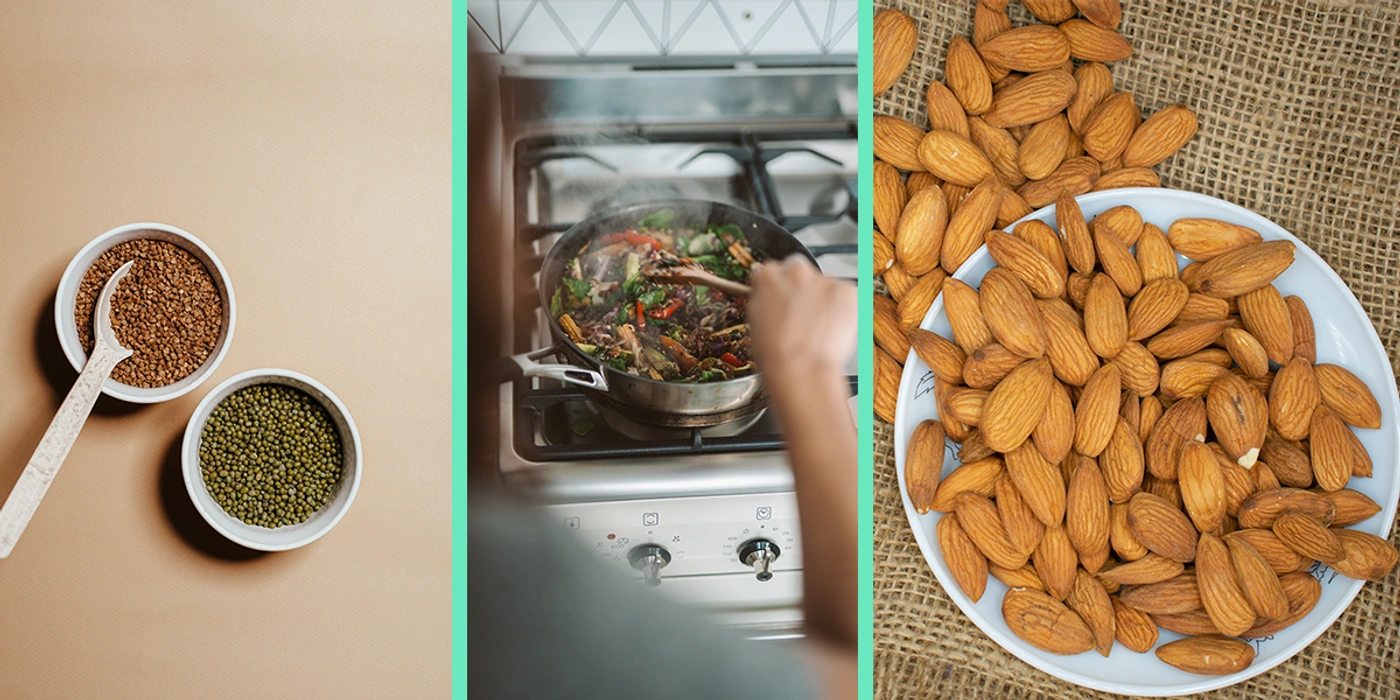Diet: plant-based proteins for a positive impact

Protein is one of the pillars of our diet, essential for our daily energy intake. In addition, they contribute to the proper functioning and construction of muscle and bone tissue while ensuring the proper functioning of our immune system. Whether you are sportif.ve or not, proteins are essential and are present in many foods. To consume it in an eco-responsible way, let's put meat aside and look at plant-based alternatives, which are much less harmful to the planet.
Habits destined to change
Nowadays, we are becoming more and more aware of the dramatic consequences of our meat consumption. These include significant greenhouse gas emissions, deforestation, animal abuse, etc. Indeed, the CO2 emissions generated by animal exploitation are immense. Livestock farming alone is responsible for 14.5% of greenhouse gas emissions. In addition, over the past fifty years, meat consumption has steadily increased in households; North America with the highest growth. In this trend, we observe that beef and lamb are the two animals with the highest CO2 emissions with almost 75%. On the other hand, pork and chicken are responsible for 9.50% and 8.70% of GHG emissions respectively. However (and fortunately), it is the latter two animals that are consumed the most, leaving cattle in third place. The cost factor and purchasing power are obviously part of the equation.
Despite this general awareness, the curve continues to rise (until 2014 at least, the date of the study available here). However, this does not mean that we should stop our efforts and continue to change our consumption habits. Because change, even if we are aware of it, is more difficult to implement when it disrupts our habits...
Read a full article (Le Monde) summarizing the study: Why is meat so harmful to the planet?
Alternative power supply
Now, meat probably doesn't have a place on our plate every day. At the very least, we should be aware that this habit has serious consequences. To reduce your carbon footprint without putting your health aside (it's obvious), we can replace this protein intake. Indeed, many foods are also rich in protein and can be used as a substitute.
Often, we support the arguments of taste or texture to discredit plant-based alternatives. Faced with this, a lot of products and brands specialize in substitutes that adopt mimicry. For example, a soybean steak that would be worked and designed to look and taste like a beef burger. The texture and aromas are convincing, they say.
Other alternatives exist and are much more interesting. Discovery is part of food: let's discover new culinary horizons. Lentils, oilseeds, spirulina, chia seeds, spinach, quinoa, oats, chickpeas, beans and the famous soy are obviously the leading plant-based protein alternatives. To give an example: lenses can come in a multitude of forms and can fulfil several roles. Firstly, red lentils can be eaten cooked in water, in the form of pâté, in soup, etc. Versatile and delicious, they are a must-have in your cupboards. Secondly, green or black lentils can be the base of a comfort food like dahl. But also as an accompaniment in a salad with beautiful seasonal vegetables (to find out more about seasonal vegetables: our dedicated article. Of course, there are other examples. In our opinion, it is important to highlight them and show the plurality of these more sustainable alternatives.
Future & Food
Meat is outdated. Although it is still very (too) present in our consumption habits and in the public space, this needs to change. The numbers speak for themselves: if we don't change the way we eat, the consequences will be disastrous. Curiosity and open-mindedness are probably our best allies. They will allow us to expand our knowledge and reinvent our daily meals. To contribute to this and try to convince the most reluctant, we can, for example, offer them a vegetarian recipe book, suggest a favorite restaurant that offers sustainable cuisine, etc. Our influence on those around us may be greater than we think. Changing habits is not easy, but if we all act together, the road ahead will seem much more pleasant.
Discover here 6 apps that allow you to eat better and healthier.